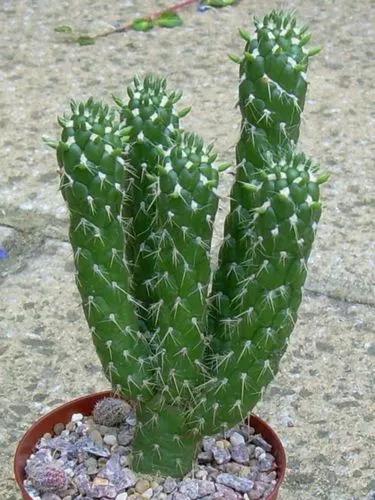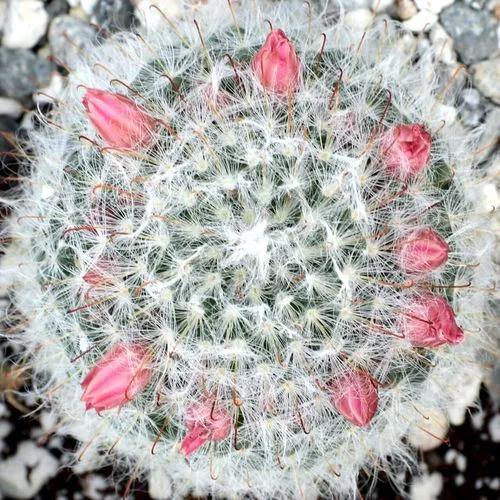Introducing the Peanut Cactus - a houseplant that's as unique as it is captivating. Picture this little conversationalist nestled in your indoor sanctuary, sparking discussions and adding a touch of the extraordinary to your home. How can you take care of this prickly wonder and keep it flourishing indoors? Let's find out.
Peanut Cactus Care
Echinopsis chamaecereus



The Peanut Cactus, or Echinopsis chamaecereus, is a petite globular cactus with a fascinating look. Its cylindrical stem segments, resembling tiny peanuts, stretch to about 2-4 inches (5-10 cm) in length and 1 inch (2.5 cm) in diameter, its main identification feature. Now, these stems are like a spiky work of art, decked out in spines that can sport shades from yellow to reddish-brown. The result is a cactus that's not just prickly but textured and visually intriguing. Come late spring and early summer, it might even treat you to vibrant, funnel-shaped flowers that bloom right from the sides of those fascinating stems, flaunting hues of red, orange, or yellow.
How to Care for the Plant

Water

When it comes to watering, a gentle approach is key. Let the soil take its time to dry out completely between drinks. Typically, that's about every 3-4 weeks. To check, insert your finger about an inch deep (2.5 cm); if it feels dry, it's watering time. But remember, in the winter, hold back a bit. Overwatering can lead to root rot, and nobody wants that.

Pruning

Pruning isn't on the daily agenda for this cactus. It grows into its own natural shape. However, if you spot any brown or dead leaves, feel free to snip them away. It's all about keeping things tidy.

Fertilizer

Fertilizing isn't a must, but if you decide to go for it, use a cactus fertilizer once a month during the spring and summer.

Sunlight

The plant is a sun lover, but it prefers bright, indirect sunlight to truly thrive. So, a south-facing window is your best bet, providing all that lovely sunlight without the fierce afternoon rays. It's all about lighting up your cactus's life.

Soil

For the Peanut Cactus, well-draining cactus mix or regular potting soil with a dash of perlite or pumice is the way to go. This mix ensures the soil doesn't get waterlogged, which is just what your cactus needs.

Propagation

You can go with stem cuttings - just snip a healthy stem away from the main plant and let it air-dry for a night. Once it's toughened up, plant it in a cactus potting mix and keep the soil a little moist. Alternatively, you can sow some seeds in a well-draining potting mix, and remember to keep the soil slightly damp.

Temperature

The Peanut Cactus likes it cozy, with temperatures in the range of 59-77°F (15-25°C). But here's the catch - it's not a fan of the cold. Keep it away from the chilly drafts and steer clear of exposing it to the scorching afternoon sun.

Container

Picking a pot for your Peanut Cactus? Terracotta pots are your best bet. They offer excellent drainage and just the right amount of air circulation. Plus, make sure the pot has enough depth to cradle those cactus roots comfortably.

Fun fact

The Peanut Cactus is a survivor in the world of drought. It's got this knack of storing water right in its stems. But wait, there's more - it creates these little offshoots at its base that look like tiny peanuts. You can separate these to propagate new plants, adding a touch of botanical uniqueness to your space.

Popularity

16,863 people already have this plant 2,317 people have added this plant to their wishlists
Discover more plants with the list below
Popular articles






